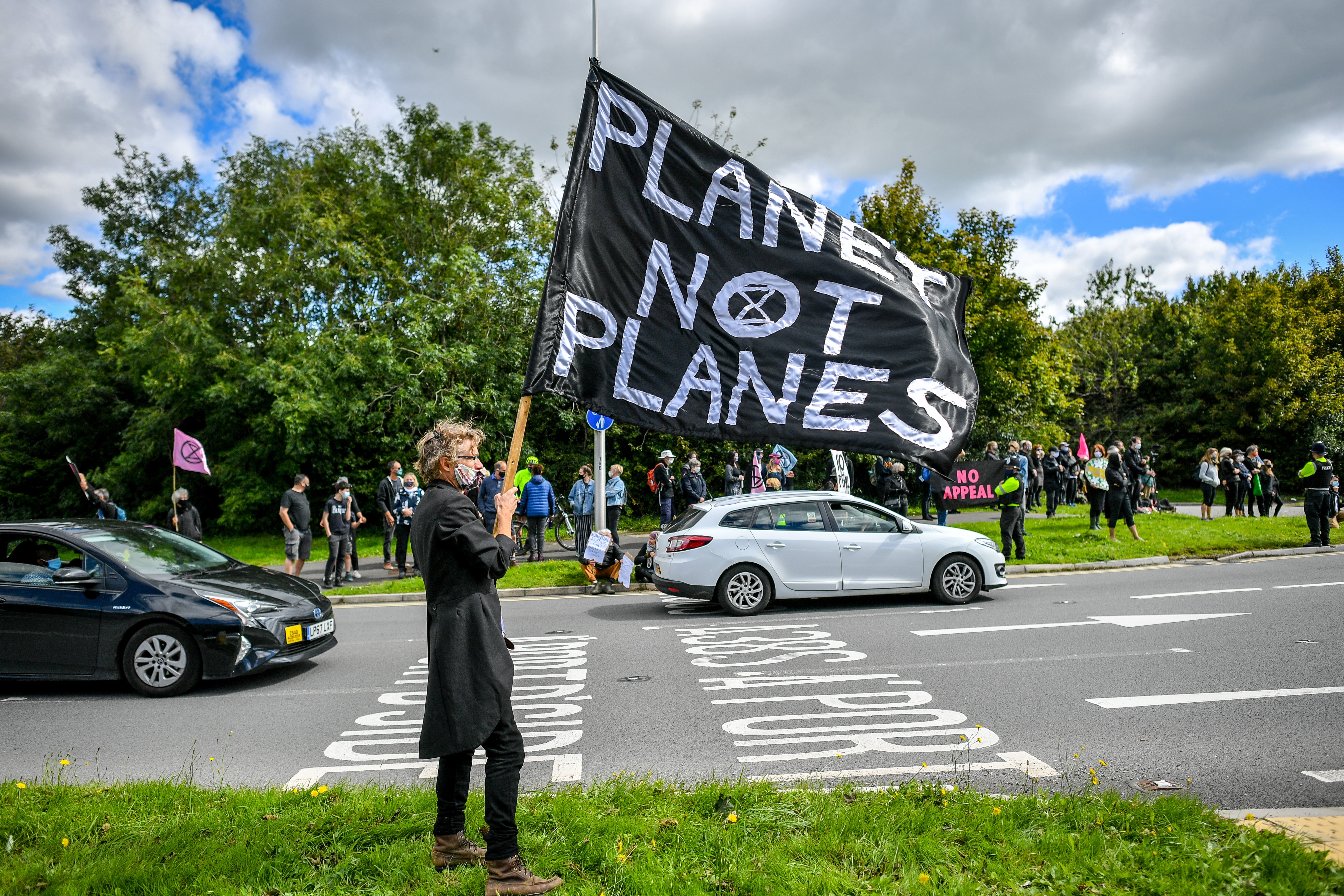Why airport expansion has no place in a climate emergency
As Bristol gets the go-ahead to increase capacity from 10 to 12 million passengers a year, Flight Free UK founder Anna Hughes asks: how is this still acceptable?

So, here we go again. Another airport has been given the green light for expansion. Bristol airport, after four long years of asking, will finally be able to increase its capacity from 10 million to 12 million passengers a year.
It’s a curious move for a government that still holds the COP26 presidency and professes to be a climate leader. No matter how much the industry promises 'green' aviation, more passengers equals more emissions, and rising emissions is exactly what we don't need in a climate emergency.
The Bristol path to approval was a long and sometimes dramatic one, with back-and-forthing, protests, high-profile opposition, appeals, and victories on both sides. Airport expansions no longer go through on the nod.
More passengers equals more emissions, and rising emissions is exactly what we don’t need in a climate emergency
For the campaigners who tirelessly fought the expansion, today is a day of frustration and anger. The decision blatantly disregards our fragile climate situation, given that expansion will increase airport noise and emissions, and increase road traffic on the already creaking access roads (with no rail link, most people accessing Bristol airport do so by car). And it’s a slap in the face for local democracy, after North Somerset council refused the expansion in early 2020, stating that the impact on the environment outweighed the narrower benefits of growing passenger numbers.
An extra sting in the tail is that Bristol airport is owned by the Ontario Teachers’ Pension Plan – a company based over 3,000 miles away. Young protestors speaking out against the expansion previously sent a video to the OTPP begging them not to threaten local Green Belt land for the sake of their own pockets.
Airport expansion simply doesn’t make sense. You can't reach net zero and at the same time increase the number of planes in the air. The government’s own advisor body, the Committee on Climate Change, recognises this, saying that the absolute upper limit for growth should be 25 per cent in order to stay within its net zero scenarios. Yet taking into account the 21 UK airports that have expansion plans in the pipeline, you’re looking at adding around 60 per cent to pre-pandemic capacity. Expand one and you make it more difficult to refuse expansion at any. In the end, this isn’t just about Bristol.
Trying to claim that airport expansion is a positive move for the climate by removing a few road journeys is a low blow
Take Leeds Bradford for example. If allowed to expand from four million passengers to seven million, by 2030 the climate impact of flights to and from the airport alone would be twice the target emissions for the whole of Leeds.
Back to Bristol, and among the arguments put forward by the Planning Inspectorate were that “new routes will remove some of the eight million car journeys from the south-west to London airports that were made each year before the pandemic.”
Trying to claim that airport expansion is a positive move for the climate by removing a few road journeys is a low blow. Airports don’t meet existing demand, they drive new demand, and this expansion will mean more passengers, more routes, more destinations, more flights, more emissions. It could even lead to more car journeys if passengers are tempted by routes that aren't offered at other regional airports. Air travel is the highest-carbon form of transport there is. There is nothing positive about more planes in the sky from a climate point of view.
The world seems to be finally waking to the reality of the climate crisis, which makes it that much more ludicrous that decisions like this are taken. We say we understand the urgency, but our actions say otherwise. We are miles from where we need to be in what is fast becoming a desperate situation.
Airport expansion has no place in a climate emergency. While the benefits might be felt by a few, we will all, ultimately, pay the price.
Anna Hughes is an author, environmental campaigner and founder of the Flight Free UK campaign, which encourages travellers to pledge to give up flying for a year. Click here to find out more and take the pledge.
Join our commenting forum
Join thought-provoking conversations, follow other Independent readers and see their replies
Comments
Bookmark popover
Removed from bookmarks